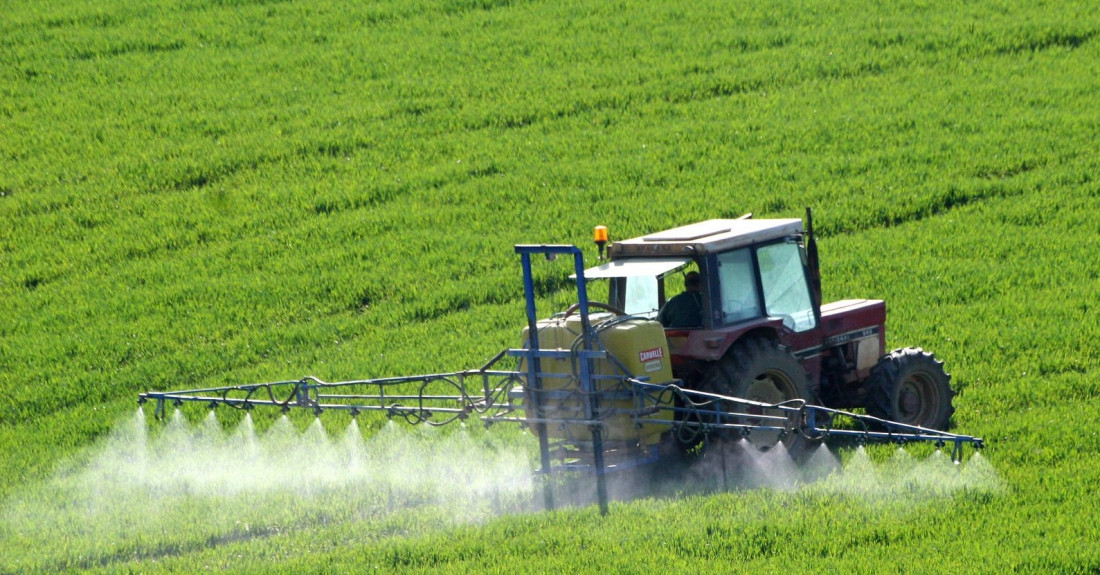As part of the EU’s ambitious new ‘Circular Economy Package’, designed to ensure that “resources are used in a more sustainable way”, the EU parliament and Council is set to adopt a draft regulation that is aimed at lowering the use of non-organic fertilisers.
Describing the current situation, the international law firm Pinsent Masons said, on their website Out-law that, “At the moment only conventional fertilisers that are typically extracted from mines or produced chemically can be traded freely across the EU.” But now this looks to be changing as, “The Commission has proposed regulations. which cover the conversion of bio-waste into raw materials that can be used to manufacture fertilising products.”
The new laws will promote the use of organic fertiliser, as the European Commission press release made clear, stating, “Currently, the EU imports around 6 million tonnes of phosphates a year but could replace up to 30% of this total by extraction from sewage sludge, biodegradable waste, meat and bone meal or manure.”
When explaining the proposal to the EurActive news agency, Jyrki Katainen, the European Commission Vice-President for Jobs, Growth, Investment and Competitiveness said, “Very few of the abundant bio-waste resources are transformed into valuable fertilising products. Our farmers are using fertilisers manufactured from imported resources or from energy-intensive processes although our industry could valorise these bio-wastes in recycled nutrients. This Regulation will help us turn problems into opportunities for farmers and businesses.”
The full draft regulation can be read here, with an accompanying fact sheet here, but Pinsent Masons outlined the proposed changes as follows, “The new rules will apply to all types of fertilisers, and introduce strict limits for cadmium in phosphate fertilisers. The limits will be tightened from 60 mg/kg to 40 mg/kg after three years and to 20 mg/kg after 12 years, reducing health and environmental risks.”
The UK based Renewable Energy Association explained in more detail how the proposals will work, stating that, “As some fertilising products are not produced or traded in large quantities across the EU, the Commission has proposed optional harmonisation. This means that manufacturers within the EU can choose to comply with;
- The revised EU Fertilisers Regulation, affix the CE mark to their product and trade it anywhere within the EU.
or
- National rules, which allow them to trade their product in their national market.”
Whilst traditional, phosphate based fertiliser traders are naturally worried that the regulations will devastate their export business overnight and put many traders out of business, other sectors of the agricultural industry have welcomed the development.
When talking to the agricultural website Hortidaily, Copa and Cogeca Secretary-General Pekka Pesonen explained how many EU farmers are struggling to stay in profit with rising production costs, such as fertilisers. He was therefore happy to see the draft plans to regulate mineral fertilisers, saying “As the first deliverable of the Circular Economy Package, we welcome this proposal to extend the scope of the EU fertilizers regulation to include organic fertilizers so that farmers in Europe will have a wider choice of fertilisers and better access.”
However, he continued his statement by stating that the regulations did not, “address the real core of the problem. Farmers are not only users of mineral fertilizers, they also produce organic fertilizers like manure and digestates from biogas plants. Certain regions have a surplus whilst others have a deficit. Although the proposal does provide room to allow fertilizers based on manure to be substituted for mineral fertilizers, the proposal is far from realistic. For European farmers, it looks like window dressing. They still cannot make use of the innovative products like mineral concentrates from manure. Moreover, we are concerned about reducing the maximum level for cadmium below 60mg/kg P2O5 which could put additional pressure on production costs of phosphate fertiliser. This gives additional support to our proposal to cut import duties to zero for fertilizer products to reduce input costs. We urge the EU Commission to make this a reality.”
Whether the EU Commission will listen has yet to be determined, but it seems that for now the EU fertiliser market is set for unsteady waters.
No one believes that the old 2003 EU regulations on fertilisers were perfect, but the new rules will put a lot of pressure on phosphate traders and have great potential to cost jobs. Maybe this will be a deciding factor for politicians when they come to vote on the legislation. If the rules are adopted, then at least there will be a guaranteed “transitional period allowing companies and public authorities to prepare for the new rules.”
Phosphate traders and fertiliser manufacturers who do not want the law changed, still have time to write to their MEPs. But they had better be quick.

